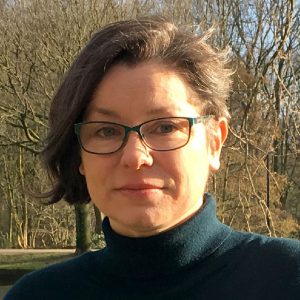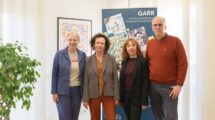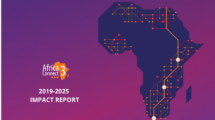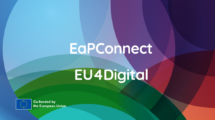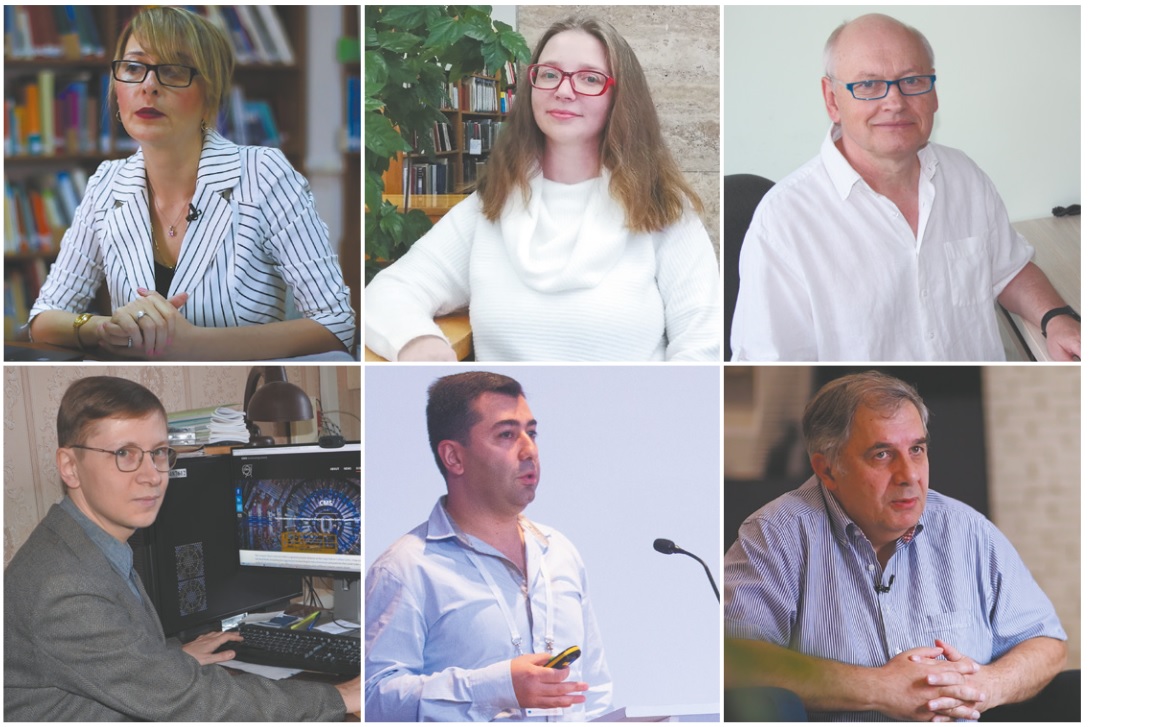
Connectivity is key
Before EaPConnect, connectivity between EaP countries and the GEANT pan-European network was indirect, low-capacity or non-existent. Now all countries are connected with a tenfold capacity increase in Georgia, Azerbaijan, Moldova, Ukraine and Belarus and around 7-fold in Armenia. Procurement in collaboration with GÉANT succeeded in reducing Internet connectivity prices by around 60% in Belarus and Ukraine, and by around 80% in the South Caucasus countries.
Connectivity improvements are critical for data-intensive research. For instance, Ukrainian and Belarusian high-energy physicists are helping unravel fundamental secrets of the universe, using data from CERN’s Large Hadron Collider experiments. The Institute for Nuclear Problems of the Belarusian State University used fast connectivity to the GÉANT network to become a fully functional part of the Worldwide LHC Computing Grid.
“I take pride in my involvement in the outstanding scientific results obtained.” Alexey Kurov, Kharkiv Institute of Physics and Technology in Ukraine, is part of his country’s only team able to process LHC CMS experiment data.
In Azerbaijan, the Republican Seismic Survey Center (RSSC) sensor network gathers large amounts of data on frequent earthquakes.
“We process the information within 10 minutes and send it to the Presidential Office. Uninterrupted Internet is essential. AzScienceNet’s collaboration with us and GÉANT through EaPConnect has improved our work a lot.” Seismologist Ruqiyya Karimova, RSSC Azerbaijan
Services and support
Around 800,000 students, researchers and staff at universities, research institutes and other connected institutions can access EaPConnect partner networks and services. During the project, the number of connected institutions grew significantly in Georgia (17%), Armenia (26%) and Azerbaijan (58%). The number of services on offer, including from the GÉANT portfolio, has grown too. While eduVPN, FileSender and eduGAIN rollout is still small, the eduroam educational roaming Wi-Fi service can now be found in around 275 locations and is a focus of collaboration between some partners and the Erasmus+ programme.
“GRENA performs outstanding work by introducing eduroam in Georgia. TSU is a leader in terms of international cooperation and a huge number of students go abroad to study with the support of Erasmus +. eduroam is the most beneficial resource for them.” Revaz Shanidze, Associate Professor at Tbilisi State University, has used eduroam extensively.
The provision of online meeting and learning tools was stepped up in response to COVID-19. RENAM added eduMEET and openUp2U to its offer and is working with the Ministry of Education, Culture and Research to ensure learning continues in Moldova during the crisis. In Ukraine, URAN very rapidly set up eduMEET, which soon attracted around 100 concurrent users.
“I prefer eduMEET over other services. I am grateful to URAN for implementing this platform, its simplicity just wins me over.” Roman Yatsenko, Head of the E-Learning Tools Department at Simon Kuznets Kharkiv National Economic University was among the first to try the service in Ukraine.
Partners’ cloud services have also grown – 126 organisations are now using them; for example, for academic publishing in Ukraine, climate change prediction in Georgia, extreme weather forecasting in Armenia, and medical imaging handling and analysis in Moldova and Belarus. In Belarus too, clouds have supported a local history app and the creation of a CLARIN (Common Language Resources and Technology Infrastructure) knowledge centre.
“Many of these fruitful steps became possible due to the support of BASNET and EaPConnect.” Yuras Hetsevich, Head of the Speech Synthesis and Recognition Laboratory of the United Institute of Informatics Problems of the National Academy of Sciences of Belarus.
Community and collaboration
EaPConnect has built productive human networks between its EaP partners, other NRENs and e-infrastructures. Ten European and 3 non-European NRENs have been associate partners; a mentorship scheme to create practical technical collaborations has already resulted in an Armenian computer emergency response team. Formal agreements have been signed: for example, in 2018 between AzScienceNet and the Minister of Education of the Republic of Azerbaijan regarding use of the networks and international scientific collaborations; in 2019 between GRENA and the Shota Rustaveli National Science Foundation regarding use of cloud infrastructure; and in 2019 between the Armenian and Belarusian project partners, IIAP NAS RA and UIIP NASB, building on their EaPConnect partnership.
Four project ‘EaPEC’ conferences attracted around 530 people from 50+ organisations and featured 22 projects selected under the project’s Enlighten Your Research programme. 30 training events and workshops gave around 500 participants the opportunity to meet and learn together. These events helped create and strengthen relationships with researchers, national ministries and institutions, and to raise partners’ visibility with local and national media. EaPConnect also supported participation in GÉANT and other international events and community working groups.
“EaPConnect has strengthened the bonds between its partners and the GÉANT community, project and association, with positive effects on both sides. I look forward to these collaborations developing further in the coming years.” Erik Huizer, GÉANT CEO
More information
Top image – clockwise:
- Lika Megrelidze, National Environmental Agency of Georgia, researches climate impacts using GRENA cloud services, under agreement with Shota Rustaveli National Science Foundation.
- Valentyna Lukianenko, Igor Sikorsky Kyiv Polytechnic Institute in Ukraine, publishes ‘Advanced Education’ journal with support of URAN Publishing Service and virtual computing infrastructure.
- 2018 Enlighten Your Research winner Vassili Kovalev, National Academy of Sciences of Belarus, uses high computational power accessed via BASNET to overcome legal, ethical and security challenges in the generation of medical images for research
- Alexey Kurov, Kharkiv Institute of Physics & Technology in Ukraine, accesses data from the LHC Compact Muon Solenoid (CMS) experiment using improved international connectivity organised via URAN.
- 2019 Enlighten Your Research winner Artur Gevorgyan, Hydromet Service of Armenia, uses numerical weather prediction models to reduce impacts of extreme weather, using ASNET-AM cloud services.
- Revaz Shanidze, Tbilisi State University, is an enthusiastic user of eduroam provided in Georgia via GRENA.
Find out more about the EaPConnect project and read more of the team’s success stories on In The Field site.
